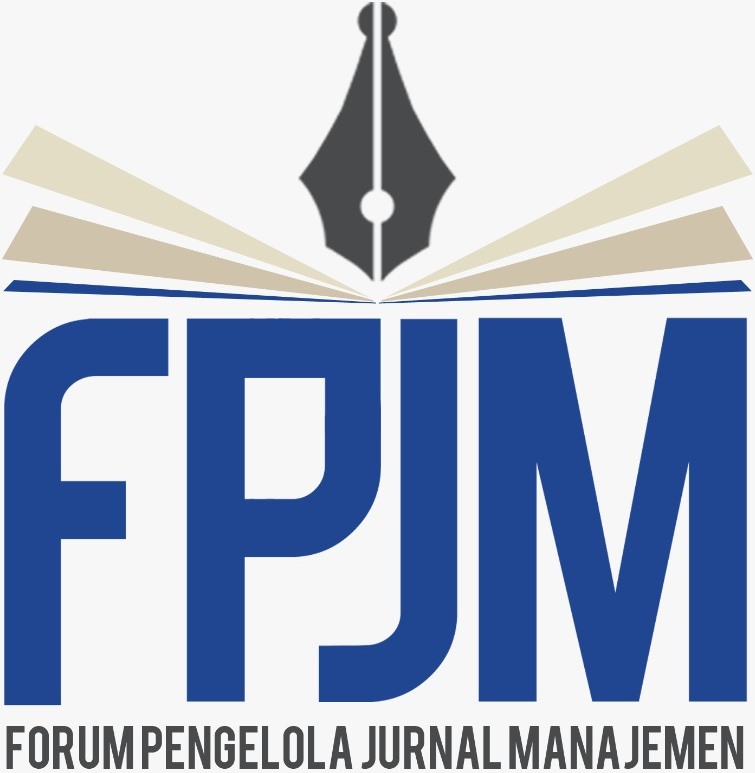HALAL LABEL: IS IT IMPORTANT IN DETERMINING BUYING INTEREST?
Abstract
Abstract: The purpose of this study was to determine the effect of the halal label on Korean noodle food on the buying interest of adolescent consumers. The population in this study were teenagers in the city of Jakarta. The number of samples that were successfully processed were 100 teenagers as respondents using random sampling method. This research uses simple regression analysis analysis. Data collection techniques by distributing questionnaires to 100 adolescent respondents in Jakarta. The test results in this study found that the halal label on Korean noodle food had a significant effect on the buying interest of teenage consumers. Halal labels are the basis for purchasing decisions for teenage consumers to fulfill religious beliefs, with the presence of halal labels on Korean noodle foods, it can be ensured that the food consumed is of good quality and good for health, which pays attention to the ingredients. The implication of this research is for business people to consider adding halal labels to their products, especially if they are marketed in countries with a majority Muslim population.
Abstrak: Tujuan dari penelitian ini adalah untuk mengetahui pengaruh label halal pada makanan mie Korea terhadap minat beli konsumen remaja. Populasi dalam penelitian ini adalah remaja di kota Jakarta. Jumlah sampel yang berhasil diolah adalah 100 remaja sebagai responden dengan menggunakan metode random sampling. Penelitian ini menggunakan analisis analisis regresi sederhana. Teknik pengumpulan data dengan menyebarkan kuesioner kepada 100 responden remaja di Jakarta. Hasil pengujian dalam penelitian ini menemukan bahwa label halal pada makanan mie Korea berpengaruh signifikan terhadap minat beli konsumen remaja. Label halal menjadi dasar keputusan pembelian konsumen remaja untuk memenuhi keyakinan agama, dengan adanya label halal pada makanan mie korea dapat dipastikan makanan yang dikonsumsi berkualitas baik dan baik untuk kesehatan, yang memperhatikan kandungan bahannya. Implikasi penelitian ini adalah bagi para pelaku bisnis harus mempertimbangkan penambahan label halal pada produknya, khususnya jika dipasarkan di negara yang mayoritas berpenduduk muslim.
Keywords
References
Adinugraha., H. H., Isthika, W., & Sartika, M. (2017). Persepsi Label Halal Bagi Remaja Sebagai Indikator Dalam Keputusan Pembelian Produk: As a Qualitative Research. Perisai, 1(3), 180196.
The Quran (QS Al-Baqarah Ayat 173:2). (2011). PT Cordoba Internasional Indonesia.
The Quran (QS Al-Baqarah Ayat 168:2). (2011). PT Cordoba Internasional Indonesia.
Ambali, A. R., & Bakar, A. N. (2014). Peoples Awareness on Halal Foods and Products: Potential Issues for Policy-Makers. Procedia-Social and Behavioral Sciences, 121, 325.
Angipora, Marinus. (2002). Dasar-Dasar Pemasaran. Raja Grafindo.
Aoun, I. (2015). Building Holistic Brands, An Exploratory Study of Halal Cosmetics. Journal of Islamic Marketing, 6(1), 109132.
Durianto, D., & Liana, C. (2004). Analisis Efektifitas Iklan Televisi Softener Soft & Fresh di Jakarta dan Sekitarnya Menggunakan Consumer Decision Model. Jurnal Ekonomi Perusahaan, 11(1), 3555.
Girindra. A. (2008). Dari sertifikasi Menuju Labelisasi Halal. Pustaka Jurnal Halal.
Habibie, F. H., Mustika, A., & Ratnaningtyas, H. (2021). Promotion of Instagram and Purchase Intention, A Case of Beverage Business at Covid-19 Pandemic. (TRJ) Tourism Research Journal, 5(1), 7896.
Habibie, F. H., Mustika, A., & Ningrum, L. (2019). Halal Label: Is It Important On Foreign Food Product?. International Journal of Innovative Science and Research Technology, 4(11), 575579.
Hasibuan, H. A., Nasution, M. D. T. P., & Anggraini, F. (2017). The Effect of Halal Label, Halal Awareness and Brand Image on Consumer Intention to Buy. International Journal For Innovative Research In Multidisciplinary Field, 3(11), 140147.
Hendradewi, S., Darsiah, A., Mustika, A., & Habibie, F. H. (2020). Halal Awareness toward the Interest in Buying Foreign Food Product: A Case Study in Korean Instant Noodles Purchases by School teenagers in Jakarta. Journal International Journal of Advances in Social and Economics, 2(1), 15.
Hussain, I., Saleem, R., Arshad, Z., & Saleem, S. (2016). Integrating Factors Influencing Consumers Halal Products Purchase: Application of Theory of Reasoned Action. Journal of International Food & Agribusiness Marketing, 28(1), 3538.
Husaini, F. (2015). The Consumption Behaviour of Muslim Students towards Halal Food in Yogyakarta Indonesia: A SEM Aproach. Global Review of Islamic Economics an Business, 3(2), 120135.
Mustika, A., & Achmadi, M. (2018). Teenagers Perception of Halal Food as an Option for Culinary Tourism. Advances in Social Science, Education and Humanities Research, 259, 2429.
Peraturan Pemerintah. (1999). Peraturan Pemerintah Indonesia tahun 1999 No. 69 tentang Label dan Iklan. https://peraturan.bpk.go.id/home/download/43825/PP%20No.%2069%20th%201999.pdf
The Jakarta Post. (2016, Februari 26). Halal foods pioneer sentenced for export fraud Indonesia, Malaysia. The Jakarta Post. https://www.thejakartapost.com/news/2016/02/26/halal-foods-pioneer-sentenced-export-fraud-indonesia-malaysia.html
DOI: 10.34203/jimfe.v7i1.2929
Refbacks
- There are currently no refbacks.
Copyright (c) 2021 JIMFE (Jurnal Ilmiah Manajemen Fakultas Ekonomi)

This work is licensed under a Creative Commons Attribution-NonCommercial-ShareAlike 4.0 International License.











